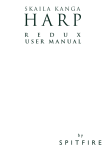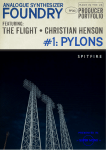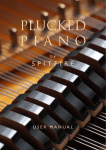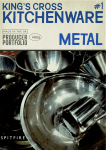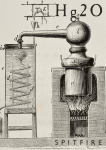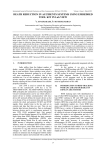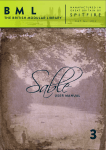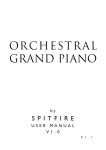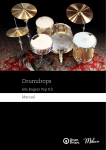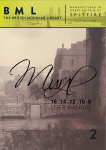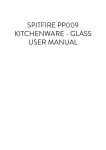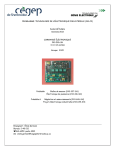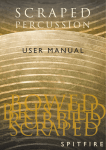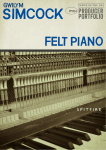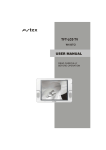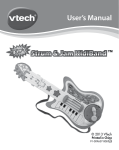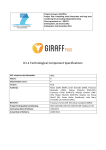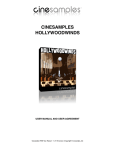Download L E O A B R A H A M S
Transcript
U S E R L E O M A N U A L A B R A H A M S ENIGMA S P I T F I R E Welcome. Thanks for being part of the Spitfire Audio project. We’ve tried to make this as brief and interesting as possible but we also understand that reading manuals is a bore, so stick this next to your loo and give it a read whenever you can. About Spitfire: Spitfire was formed in 2008 by a group of successful British composers as a means of producing the tools they needed for their busy work schedules. Sick of dry, humourless, ugly, unrealistic sounding libraries, Spitfire set about redefining the way samples were created. Our aim is to create a library of sounds made by the people who make music. To transform an industry populated by software developers back to the originators, the performers artists and technicians who make the sounds other libraries try to emulate! Leo Abrahams - Enigma Leo Abrahams is a trailblazing musician, composer, and producer who has recorded and toured with such successful artists as; Imogen Heap, Ed Harcourt, Roxy Music, Grace Jones, and Pulp. Leo began to write and produce for a catalogue of aspiring singers and bands, which led him to creating his own records including The Unrest Cure, featuring the vocal stylings of; Brian Eno, KT Tunstall, Ed Harcourt, Foy Vance, and Bingo Gazingo. Leo has produced for a number of artists including Paolo Nutini, Wild Beasts, Frightened Rabbit and Carl Barat of the Libertines; he has composed such incredible soundtracks as that of The Lovely Bones (with Eno) and Hunger (with David Holmes); and he is also credited as the guitarist in such fantastic film scores as that of Oceans 12, Twilight and Green Zone. Leo’s talent has extended across multiple genres of music, and it is his devotion along with his raw talent that has brought him the success he has today. “ENIGMA” is a collection of awe inspiring sounds and tools created exclusively by Leo in conjunction with Spitfire Audio. As composers ourselves we have been itching to get our hands on what we know will become essential DNA for future compositions and productions. Created largely on a rusty Trussart guitar plugged into Leo’s infamous pedal array, with over 300 presets including weird and wonderful sounding guitars, synths, pads, atmos, phrases and over 200 loops. This library is 5GB (compressed from 10GB) of pure inspiration. VIs - Purpose built curiosities, some more recognisable than others. But all with that distinctive rusty sound! PADS - Raw chordal instruments direct from Leo. MORPHED PADS - Beautiful circuit bent synths and pads always derived from a rusty source! LOOPS - Rhythmic and percussive phrases tempo sync’d to your host. ATONAL FX - A selection of rustic pylons to screw with your beautiful sonic landscapes! PA G E 2 System Requirements KONTAKT - this Harp library requires the full version of Kontakt to run, it will not work in the Kontakt ‘Player’: please make sure you have the absolute latest version of either Kontakt 4 or Kontakt 5. 98% of all enquiries to our support dept. are cured by the upgrade. This is a cutting edge library and it simply won’t work on anything but the latest versions. RECOMMENDED SPEC: The better your computer, the better the performance of Harp REDUX. But not to worry if you’re not spec’d up to the hilt. All programs are provided with a set of parameters that enable you to tone back the CPU demands of any given patch. But moving forward, we’re confident this module will keep your computer busy for many years to come! We recommend a combination of high processor speeds, a good chunk of memory and a devoted 7200rpm eSata, USBII, Thunderbolt, or Firewire audio drive. The more memory you have, the less demand placed on your drive, and having a totally devoted drive gives you the chance to load less into memory and reduce load times. The higher the speed of your CPU, the more capable your computer will be to deal with some of the amazing, but complicated scripts we’ve written. PCs: We recommend an i5, or i7 Quad or 8 Core machine with 8 Gig or above memory. Vista 64 or Windows 7. However, it will work with SP2, Pentium or Athlon XP 1.4GHz 1Gig RAM. MACs: We recommend a Mac-Pro Intel Based Dual, Quad or 8 Core machine with 8 Gig or above memory. Mac OS 10.6.1 (Snow Leopard). However, we have made the module work satisfactorily on a Mac Mini 2.4 GHz and a MacBook Pro 2.4GHz Intel Core 2 Duo. DRIVES: Firewire, USBII, or eSata, 7200rpm. Ask your dealer for drives that are suitable for “AV use”. We always recommend as small a drive as possible, as the platter will be smaller and the seek time less. The library will eventually take up 25 Gig on your hard drive. If using several large libraries, or a number of Spitfire modules from the same machine, we really recommend having your samples distributed over a number of drives. Lacie eSata or Quadras 7200rpm we highly recommend. Moreover, an exciting development lies in the recent arrival of some amazing solid state (SSD) drives. With seek times reduced to a fraction (0.1ms vs 6-9ms) of what standard drives can offer, we are certain you will be able to reduce your sampler’s “pre-load” (page 24.) buffer tenfold meaning you’ll be able to load enormous orchestral palettes into a single machine. HOST: The Kontakt 4 platform should work comfortably on most commonly found platforms and DAWs. As always make sure you’re as up-to-date as you can afford! If you’re planning on building or adding Spitfire to an already large orchestral palette, we recommend running your library independently of your DAW, either on your host computer (e.g. via Re-Wire) or on a slave device (e.g.. via Midi or MOL). This will assist your load in times, and will allow your DAW to do what it does best, sort out all your note ons and note offs! PA G E 3 CONTENTS: INSTALLATION & GETTING STARTED 05 FRONT PANEL06 A COUPLE OF TROUBLESHOOTS09 INSTALLATION Because you’re reading this manual, we can presume you have successfully downloaded Harp REDUX. Included in your download email are some detailed installation instructions, please follow these carefully before going any further. We’ll see you back here, when you’re installed! GETTING STARTED Before opening Kontakt please make sure you have THE LATEST VERSION OF KONTAKT 4.2.4 OR 5 INSTALLED. 95% of all service enquiries relating to spurious or strange behaviour of our wares are solved by installing the most recent version. As this is NOT a Kontakt Player Library YOU WILL NOT SEE THE MODULE IN THE “LIBRARY” PANE. Simply navigate to the Harp via the “FILE” browser pane. If you have never used Kontakt before we wholeheartedly recommend your familiarise yourself with the basics of patch (or instrument) loading, multi management, outputting and MIDI routing detailed in the Kontakt user-manual provided with your copy of Kontakt or in the “documentation” folder of your Kontakt file. PA G E 5 FRONT PANEL 2. 3. 1. 7. 4. 10. 5. 6. 7. Page 8 PA G E 6 8. 9. LEO ABRAHAMS - ENIGMA - FRONT PANEL Although these sound excellent out of the box we’ve also given you an easy to use and ingenious front panel. 1. Lo & Hi Pass Filters LPF = Low, HPF = Hi. Adjust the graph on the LPF to chop off the top end, HPF to chop off the bottom. So if you want to reduce your fizzing synth sound to a muted sub tone drag the LPF graph from right to left. 2. Wobble Amount Three modulator windows that give you wobble, or sometimes, WAB WAB WAB! Adjust the AMT to effect the amount of WAB WAB. 3. Wobble Frequency Adjust the graph to change the frequency or speed of your wobbles. For tempo sync’d modulators this will tune coarsely to provide you with 8th triplet 16th, etc etc. 4. A.D.S.R. Attack, Decay, Sustain Release envelope. These knobs will adjust the shape of the sound from a volume point of view. Adjust attack to make the sound come thudding in or gradually fade in. Adjust release to make the sound go from a sharp end or off to a gradual decay. For an 808 style bass pull up one of the subbier sounds and pull the attack all the way to the right. The release to about mid way (to taste) and play some short notes. 5. FX Parameter Display We’ve pre-loaded a selection of FX. Activate by clicking the FX icons along this bar. 6. Portamento Glide On/ Off Toggle Click this to make the sound monophonic (so you only can play one note at a time) and to activate the portamento glide function. 7. Portamento Glide Amount Now that your Glide toggle is on hold one key down and whilst holding press another. Because you’re in monophonic mode the sound will transition from the first pitch you depressed to the second, this fader controls the time this transition takes. 8. Yoke X&Y FX Selector The yoke (10.) is a dual FX controller that adjusts your FX parameters in real time for fantastic sequencing options. Y = vertical controller, X = horizontal. Scroll down to select which FX you wish to control. 9. Yoke X&Y FX Parameter Selector Determines which parameter from your selected FX you wish to map to the X or Y yoke controller. You can also alter the FX parameters further and map them direct to the Yoke controller (right/ ctrl click) by accessing the additional FX parameter Bar; Command/ Right Click on the FX Icon you’d like to acces additional parameters for. PA G E 7 MICROPHONE SELECTORS As a hangover from our orchestral range we have titled these CTAO (Close, Tree, Ambient, Outrigger) however in the case of Enigma these are merely labels to represent different perspectives. To turn a “mic” on click the little RAM chip beneath the faders. Mix to your hearts content or indeed alt click to assign and route mics to different outputs. Great for 5.1 / surround applications. PA G E 8 A COUPLE OF TROUBLESHOTS It is our hope that you keep in touch with us to let us know how you’re getting on, how you’re using Skaila Kanga’s Harp, how you’re finding it, and, if we were to consider looking at areas in the future, what you’d like us to look at. From this we’ll form a consensus and wholeheartedly pledge that we will act upon it wherever possible or practical. A couple of commonly asked questions... • This library really isn’t behaving how I’d expect. - OK, so we’re now officially blue in the face. But before you go ANY further please check you are using the ABSOLUTE latest version of Kontakt. Visit your trusty service centre and we hope this page remains relatively under-thumbed. • My instrument or patch seems to be playing just bits of sound, some keys are missing, and there’s lots of clicks and crackles. - Make sure that your patch is fully loaded (detailed on the front panel, page 8). Some of these are biggies so can take a while. But if problems persist make sure Kontakt memory manager is activated: then: You’ll have to restart this instance of Kontakt to feel it’s benefits. Another reason your system may be struggling is that you’re using too many mics live for the spec of your machine. Try cutting the mics as detailed on the front panel to see if this cures your problem. If it does, don’t worry you can still use these mics, just play in your parts with one active (we recommend the T(ree)) and then activate multiple mics and render down (eg. freeze function in Logic Studio). Some DAWS (ahem, Logic) only use one core of your computer when recording but will use more when playing back so again try recording with just one mic then dial in others once you’re happy. If you’re still suffering may we suggest you try and manage your pre-load buffer. Kontakt pre-loads some samples into memory so that when you hit a note Kontakt plays it out from RAM whilst addressing the rest of your samples from your hard drive(s). The slower your drives, the more you may want to rely on RAM, the faster the drives, or smaller RAM available, the more you may want to rely or your drives. If you’re using the latest generation of SSDs you’ll find you can radically reduce your pre-load buffer. Referring to the plate above tick the “Instruments Default Pre-Load Buffer Size” and drag the fader to a setting you’re happy with. PA G E 9 A QUICK THANKS Christian & Paul would like to thank the cabal of genius assembled herein. To the searing talents of Leo Abrahams and his leap of faith in doing something different. To the remarkable talents, immense intellect and invention of Blake Robinson, and our TTTGFT team of reprobates in KX, Jess McLeish, Joe Rubel, Toby Warren & Stanley Gabriel. Most of all we’d like to thank the amazing support and loyalty of our user-base, our Facebook friends and everyone on VI Control. We are in the same boat as all of you. We’re not software developers by trade, so appreciate your honesty in paying your way to be a part of our family and not distributing this illegally. But more importantly, if you have any ideas or criticism please let us know directly via our website or helpdesk and in a constructive manner . You never know, you just may have thought of something that we hadn’t considered. Indeed it is through all the wonderful feedback we’ve had regarding the harp that we have been able to present the new “redux” version and we hope to continue improving our libraries into the future. We want to make our entire range the best there is, and we rely on you to help us achieve that..... With thanks, Christian & Paul. COPYRIGHT SPITFIRE AUDIO LLP 2013 www.spitfireaudio.com










